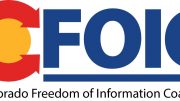By Jeffrey A. Roberts
CFOIC Executive Director
In a ruling that could have implications for a new preemptive lawsuit filed by the state against Colorado Ethics Watch, the Colorado Supreme Court held Tuesday that successfully challenging a denial of public records entitles you to attorney fees even if it was the records custodian who initiated the legal action.
The high court’s decision in Reno v. Marks was not all good news for records requesters, however, because it also overturned a determination by the Court of Appeals that Chaffee County had improperly withheld voted ballots from the 2010 general election requested by citizen elections monitor Marilyn Marks.
“The ruling is a bit of a mixed bag,” said media-law attorney Steve Zansberg, president of the Colorado Freedom of Information Coalition. “On one hand, it makes clear that a citizen who succeeds in obtaining access to public records is entitled to recover attorney fees even in cases where the custodian is the first to file a legal action. On the other hand, Ms. Marks is not entitled to recover her fees in this case because the trial court found the records had been properly withheld.”
 Under the Colorado Open Records Act (CORA), anyone filing a public-records lawsuit in Colorado must give three days’ notice in order to protect his or her right to be awarded attorney fees. Records custodians sometimes deny requests and then file their own court petitions within that three-day period in an effort to avoid having to pay attorney fees if they lose the case.
Under the Colorado Open Records Act (CORA), anyone filing a public-records lawsuit in Colorado must give three days’ notice in order to protect his or her right to be awarded attorney fees. Records custodians sometimes deny requests and then file their own court petitions within that three-day period in an effort to avoid having to pay attorney fees if they lose the case.
The Colorado Independent Ethics Commission (IEC) filed a preemptive lawsuit Tuesday against Colorado Ethics Watch, a nonprofit that promotes ethics and accountability in government. Ethics Watch had requested records related to a complaint that the IEC determined to be frivolous.
After the commission denied the request, saying the records are confidential under the Colorado Constitution, Ethics Watch notified the IEC last week that it intended to seek a court order to make the records public. The IEC went to court first, now claiming that it is “unable, in good faith” to determine if disclosure of the records is prohibited.
The IEC, which investigates ethics complaints against state and local public officials, met behind closed doors three times to review the complaint in question and then voted 3-2 on May 11 to dismiss the case as frivolous, according to the lawsuit.
Ethics Watch Director Luis Toro said the state constitution provides only that “the complaint” itself be kept confidential. “It does not give the IEC authority to conduct a secret investigation, determine on the basis of that investigation that a complaint not frivolous on its face is somehow frivolous, and then hide from the public the reasons it chose to exonerate the public official,” Toro added.
In asking the Denver District Court to decide the matter, the IEC says that releasing the preliminary investigation “would disclose the name of the complainant, the name of the respondent and the alleged misconduct even though the IEC ruled that the complaint was frivolous.”
Because of the Supreme Court’s ruling, the IEC cannot avoid paying attorney fees simply because it filed a lawsuit before Ethics Watch was allowed to file. Still, for Ethics Watch to recover its attorneys fees and court courts, it must be shown that the IEC’s records were improperly withheld.
Marilyn Marks is not entitled to recover attorney fees in Reno v. Marks, the Supreme Court ruled, because the Chaffee County clerk did not improperly withhold the voted ballots Marks requested before the clerk ultimately turning over one anonymous ballot. That release occurred after the passage of HB 12-1036, which set guidelines for making voted ballots public under CORA.
Robert McGuire, Marks’ attorney, said he is disappointed in the Supreme Court’s legal reasoning and is worried that it may foster more preemptive litigation by records custodians. By validating the trial court’s finding that the county clerk’s preemptive suit against Marks was “reasonable and necessary,” McGuire said, the Supreme Court may have provided records custodians with an incentive to sue records requesters, rather than to avoid litigation.
“That is bad news for people of ordinary means who hope to make use of CORA,” he said.
Note: Colorado Ethics Watch is a CFOIC member organization.
Follow the Colorado Freedom of Information Coalition on Twitter @CoFOIC. Like CFOIC’s Facebook page. Do you appreciate the information and resources provided by CFOIC? Please consider making a tax-deductible donation.




